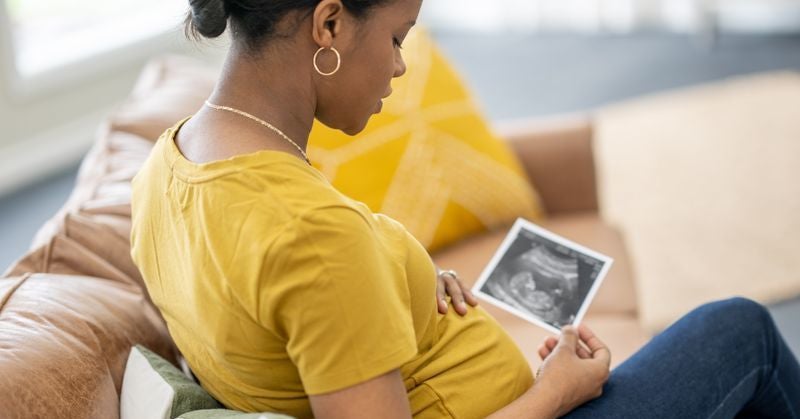A few days after coming home from the hospital, I knew something was seriously wrong. I’d just given birth, and my baby was fine, but I had a blinding headache, which was soon compounded by chest pain. Five days later, I found myself gasping for breath during simple actions like walking around the house.
By that time, my already swollen leg had inflated so much that there was a visible fluid line right below my knee — making it unbearable to wear even a pair of flip-flops. I panicked and did what many of us would — I called my mom. She was the one who told me to call my doctor. But the doctor’s office was slow to respond.
I have been studying the various inequities in the healthcare system for years, so I knew that our hospitals in the U.S. are stretched thin. I also knew that postpartum checkups are typically six weeks after birth, meaning that the clinic could not fit me in to see my doctor for days. But experiencing these healthcare flaws firsthand was something different. As a biracial woman, I felt like a statistic — one of the Black women who are nearly three times more likely than their white counterparts to die either during pregnancy or the days and weeks after.
I ended up in the hospital diagnosed with preeclampsia — a pregnancy complication that often involves an unsafe spike in blood pressure. Left untreated, it can be fatal. But I survived. Other mothers have not been so lucky.
Black birthing people are too familiar with the realities of living through one of the more dangerous times to give birth in the U.S. While babies rightly receive attention and resources from our medical system, the people giving birth to them are sometimes abandoned, especially in the increasingly deadly postpartum period.
Over years of interviewing women about their pregnancies, I’ve heard stories of Black women treated poorly by the healthcare system so routinely that they are thrilled just to have made it out alive. Those stories helped my team and I to create a pregnancy app — one designed to serve the health of pregnant women, not only the babies — as well as develop steps that people of color can take to better arm and inform themselves so that they don’t become casualties of our system.
My own crisis taught me a simple truth: Our medical data, tailored resources, and communities are crucial to guaranteeing our survival during these most vulnerable times. When facing a flawed system, they can provide the confidence to advocate for yourself, offering life-saving knowledge and peace of mind.
But it takes a change in mindset, truly understanding that our health is as important as our babies’ health. Even while facing the feelings of helplessness and everyday challenges of pregnancy, birthing people of color can assert control, take action and build resources rooted in our well-being. Here are the three biggest takeaways from my research and my birthing experience — I hope it serves any vulnerable pregnant person well.
Build the right support network.
Source link







Leave a Reply